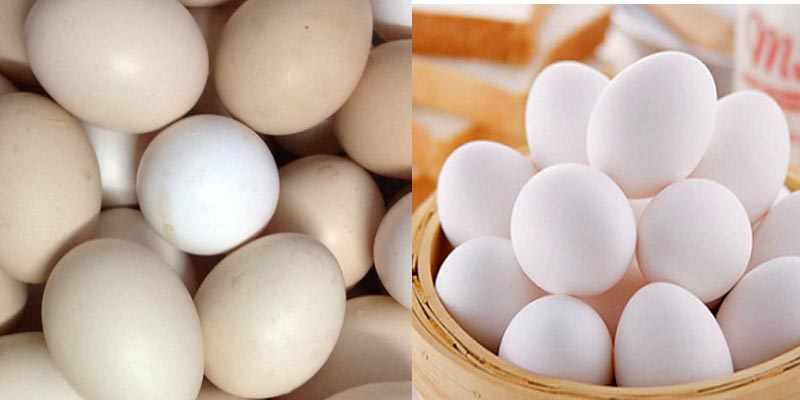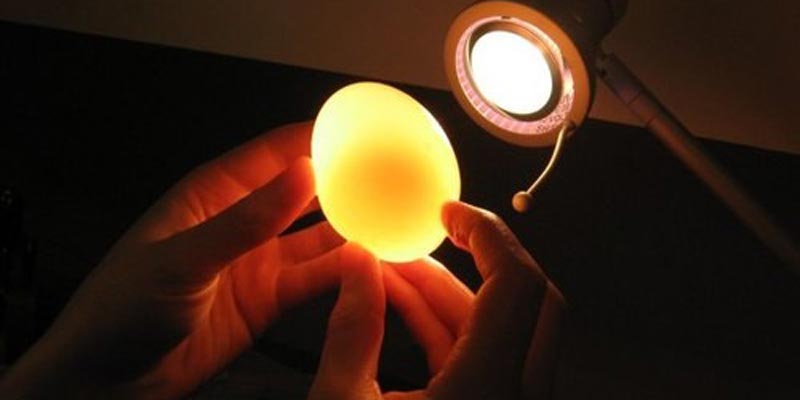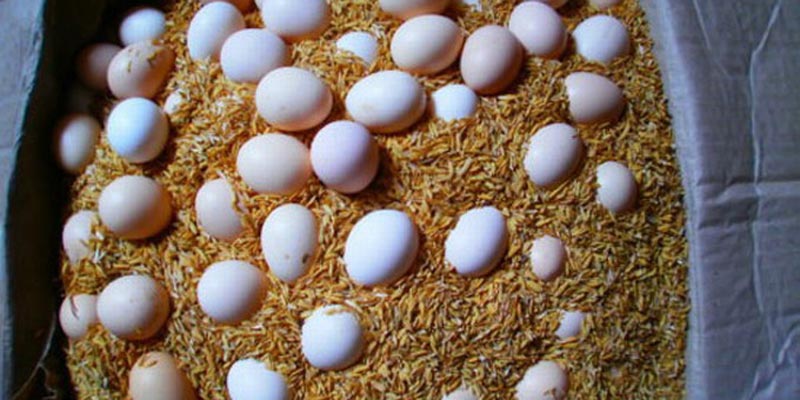1 Distinguishing Farm-Raised Eggs from Factory-Farmed Bleached Eggs

|
Criteria |
Farm-Raised Eggs |
Factory-Farmed Bleached Eggs |
|
Egg Shell |
– Natural white color with a glossy finish and some dirt stains. – Emits a crisper sound when tapped. – You can draw on it with a ballpoint pen and wipe it off. |
– Pale pinkish-white color with a matte finish and no visible dirt. – Emits a duller sound when tapped. – Ink from a pen cannot be wiped off. |
|
Size and Shape |
Vary in size and shape, some are longer or rounder than others. |
Uniform in size and shape, almost identical. |
|
Examining the Egg |
When held up to a light, the air pocket is small, the yolk is stationary, and the egg white has a reddish-orange tint. The yolk is round and centered. |
Does not exhibit the characteristics of a farm-raised egg. Shakes vigorously when held up to a light. |
|
Float Test |
If the pointed end of the egg sinks, it is a real egg. |
Floats with the pointed end facing upwards. |
|
Cracking and Boiling the Egg |
– The yolk and white blend together, and it has a natural fishy smell. – When boiled, the egg white shrinks and forms albumin. |
– If it smells sour, foul, or chemical, it is an old egg. – When boiled, the egg white remains loose and lacks albumin. |
|
Price |
Genuine farm-raised eggs are more expensive, ranging from 2,500 to 3,000 VND per egg. |
Cheaper, ranging from 1,800 to 2,000 VND per egg. |

2 Tips for Long-Term Egg Storage
Here are some tips to help you keep your eggs fresh for longer:
– Coating the eggshells with vegetable oil, such as rapeseed or sesame oil, can extend their shelf life up to 36 days. Note that this method works best at temperatures between 25°C and 32°C.
– Submerge eggs in a vase or jar filled with a 2-3% limewater solution. This method can preserve eggs for 3-4 months.
– Alternate layers of dry, clean rice husks and eggs in a container. Finally, seal the container and store it in a cool, ventilated area. This technique will keep your eggs fresh for up to 2 months.

– Storing eggs with other foods like soybeans can also prolong their freshness.
– Avoid storing eggs with ginger or onions, as they will spoil faster.
For more information:
Reference: phunutoday.vn



































